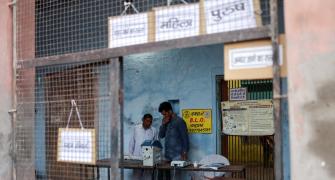One of the most debated topics is whether the Indian economy can do what China has managed to pull off over the last decade. Can the Indian economy emulate China and keep up the economic growth momentum for the next decade or so?
But first, let us analyse the nature of the Indian economy. One of the biggest anomalies, if we can call it that, is the fact that unlike most industrialised and developing economies, the Indian economy does not have a large industrial base to boast of. The Indian economy is very strongly dominated by the services sector, where the industrial sector is not as developed.
History suggests that economic growth is generally characterized by three stages. The first stage is where a majority of the populace depends on agriculture for income.
To cater to the increased demand for products from this section, the process of industrialization gain momentum, which in turn provides employment opportunities. A part of the rural populace also shifts to working in industries.
Once the industrial base has been established, the services sector starts developing, mainly to complement the industrial sector and the agricultural sector.
Eventually, the services sector becomes the major wealth-creator over the long term. This is true for most of the industrialised nations like the United States and the United Kingdom and even developing countries like China.
However, the same cannot be said about India. Just to put things in perspective, while the industrial sector contributes to around 25 per cent of the gross domestic product, the services sector contribution has increased to almost 50 per cent.
What this indicates is that the Indian economy has a relatively weak manufacturing sector. Subir Gokarn of Crisil has also evinced a similar view. There may be different reasons for that. For one, while the green revolution in the early 1980s brought some kind of hope for the agrarian sector, the benefits of the same have been disproportionate and have led to the inadequate development of the rural sector.

Since 70 per cent of the populace depends on the agriculture sector for income in India, lack of reform on this side has failed to create wealth on a mass scale. As a result, the economy has suffered to an extent.
This has had a spill over effect on the industrial sector as well. Instead, the Indian economy has seen a very strong growth in the services sector due to its huge educated population and growing entrepreneurial spirit. Now, why are we emphasising so much on reforming the agricultural sector and industrialisation?
The reason is employment. While the services sector does create jobs, it does not create adequate number of the same for a majority of the population. This may be because of the fact that for any economy to sustain a high growth rate, demand has to come from the mass population that exists in the villages and small towns of the country.
Job creation currently, is largely restricted to the graduate population. Of course, the road construction projects have had a positive impact for sure already on employment. For India to sustain a high growth rate over the next decade, more jobs have to be created.
Services alone cannot be the growth driver of the economy and hence the manufacturing sector has to catch up as far as job creation is concerned. For India to truly shine, the unemployment rate, which stood at 7.3 per cent (official figures) in 2000, should be brought under control.
As Ajit Dayal, CIO, Hansberger Global Investors, says: "It is wonderful to say 'India Shining'. But it is shining at the top. That tip of the iceberg that you can see is glowing and is snow white. But what about the bottom part? It is dark down there."







